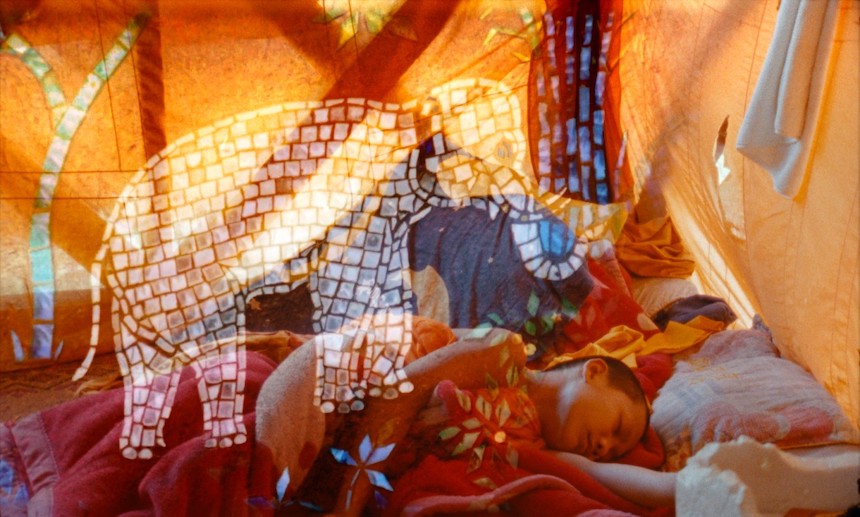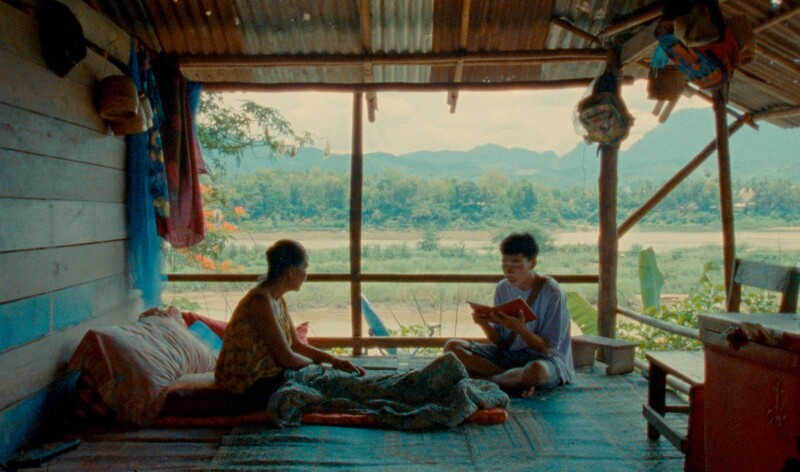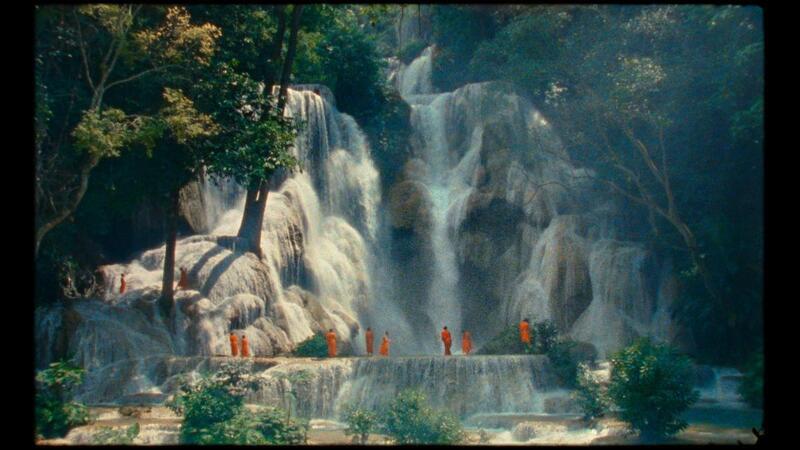IndieLisboa 2023 Review: SAMSARA Delves Into Mysteries of Life
Directed by Lois Patino, the docu-fiction hybrid explores life, death, and what lies beyond.

The enigmatic docu-fiction hybrid, Samsara, emerged as the dark horse of this year's Berlinale. The film generated buzz through word of mouth, as critics departing the premiere couldn't help but sing its praises. Directed by Lois Patiño, whose previous work includes Red Moon Tide, Samsara defies conventional categorization.
Best experienced with no prior knowledge and an open mind, Samsara should be experienced rather than read or written about. The film invites viewers to immerse themselves in its profound exploration of life, death, and the invisible ties that bind humanity.
The Galician filmmaker's latest work begins in Laos, following Buddhist teenager Amid (Amid Keomany) as he crosses a river to read the Bardo Thödol, or The Tibetan Book of the Dead, to an elderly woman nearing her end. This reading prepares her for the transition through the Bardo -- a liminal state between incarnations.
During one of his routine journeys, Amid encounters a group of young Buddhist monks and discovers a hidden waterfall nearby. The monks, who lead austere lives studying at a local temple, interact with a smartphone in the forest and listen to rap music, an art form that Amid yearns to practice.
In Samsara, Patiño masterfully interweaves impressionistic moments with a loose narrative structure, blending fiction and documentary filmmaking, as well as the mundane and the transcendental. The film's seemingly aimless trajectory makes it all the more captivating, evoking the spiritual explorations of Apichatpong Weerasethakul's slow cinema.
A pivotal moment in the film occurs when an on-screen intertitle instructs viewers to close their eyes and perceive colors and vibrations through their closed eyelids. The director then leads the audience on a metaphysical journey alongside the woman who has been read to from The Tibetan Book of the Dead.
Unexpectedly, Samsara transforms into an immersive meditation—a mystical experience that begins in Laos and transports viewers to Zanzibar in Tanzania. As the scenery, protagonist, community, and religion shift, the film adheres to the original poetical impressions and docu-observations emphasizing the experience in the moment instead of a reconstruction of a linear plot.
The story now follows a young Muslim Tanzanian girl, Juwairiya (Juwairiya Idrisa Uwesu), as she learns from her mother that their goat has given birth to a kid. In the same observational manner used to depict Amid's journey, Patiño captures the baby goat's interactions with Juwairiya and the local community.
Samsara becomes a docu-poetic meditation on the cycles of life, death, and the interconnectedness of all beings across countries, cultures, communities, and religions. The film challenges traditional visual storytelling by examining the unseen, evoking a myriad of images and emotions through its auditory experience.
Samsara offers a mesmerizing, introspective odyssey into the human spirit and the universal questions that unite us. By presenting an intimate, sensory experience that transcends boundaries, the film creates a deeply empathetic, moving, and humanistic encounter.









